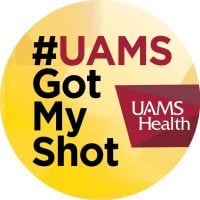Gyst Outpatient Center
Drug Rehab Center in Little Rock, Arkansas
Gyst Outpatient Center offers evidence-based addiction and substance abuse treatment with a focus on "whole person" recovery, providing clients with individualized programs, access to additional resources, and ongoing support through their post-treatment program.
About Gyst Outpatient Center in Arkansas
Gyst Outpatient Center in Little Rock, Arkansas is a leading center for addiction and substance abuse treatment and recovery services. Established in 2006, Gyst Outpatient Center offers evidence-based treatment and care with a focus on the “whole person” recovery. Gyst Outpatient Center strives to create a safe and supportive environment while helping individuals and families build the necessary skills and resources to live a life of recovery and health. Their individualized approach to treatment helps promote a successful and lasting recovery.
At Gyst Outpatient Center, individuals can take advantage of a variety of programs and services geared toward addiction treatment, such as individual and group therapy, family counseling, educational classes, and relapse prevention. Clients are also provided with access to additional resources such as vocational training, job placement, and housing support. Additionally, the staff at Gyst Outpatient Center provide the clients with supportive services to help them address any personal and emotional needs.
Gyst Outpatient Center is an accredited facility, accredited by the Joint Commission, and licensed by the Arkansas Department of Human Services. Gyst Outpatient Center is also a proud member of the National Association of Addiction Treatment Providers. Furthermore, the center offers a post-treatment program, which follows the completion of active treatment, in order to provide ongoing support and resources to assist clients in their long-term recovery journey.
Genders
Ages
Modality
Additional
Conditions and Issues Treated
Opioid addiction has become a significant health problem in the United States. When a person’s life becomes unmanageable because of an opioid addiction, treatment can help them get sober. Treatment includes medical care and counseling.
“With so many people struggling with opioid addiction, we need more care and attention for those who want to quit. Opioid addicts often take opioids when they experience a painful injury – that’s how the cycle starts! When someone begins taking their medication differently than prescribed or takes an excessive amount of drugs, it means they’re hooked on drugs and in danger of overdosing.
The most successful way to beat this is through detoxing from these types treatments at Gyst Outpatient Center in . Most facilities start by using medical support during the process while providing counseling services; rehabilitation comes later on after treatment has been completed successfully.
Levels of Care Offered
This center offers a variety of custom treatment tailored to individual recovery. Currently available are Aftercare Support, Drug Rehab, Inpatient, Outpatient, Residential, with additional therapies available as listed below.
Going to an inpatient rehab facility means living there while all aspects of addiction or co-occurring disorder get addressed. The treatment involves medical supervision, therapy, and future planning.
This type of rehabilitation provides a drug-free environment for people who struggle with chronic/long-term addiction without having access to drugs outside the center (or their own home). It takes away any distractions because they live there 24 hours per day. If someone is trying to break out old habits, which could lead them back into substance abuse, things like jobs or school can be put on hold until after they complete their stay to focus solely on recovery.
Outpatient programs at Gyst Outpatient Center, the Little Rock resident can live with their family while continuing with their job or studies. Treatment includes educating the patient on drug abuse, medications, and counseling sessions at the individual or group level. Outpatient treatment plans cover diagnosis, detoxification, management, and counseling. They are a popular option for those who have graduated from inpatient facilities.
Residential treatment programs are those that offer housing and meals in addition to substance abuse treatment. Rehab facilities that offer residential treatment allow patients to focus solely on recovery, in an environment totally separate from their lives. Some rehab centers specialize in short-term residential treatment (a few days to a week or two), while others solely provide treatment on a long-term basis (several weeks to months). Some offer both, and tailor treatment to the patient’s individual requirements.
Without aftercare support, addicts can easily relapse back into addiction. It is crucial to integrate the addict back into society. Aftercare support should take place after outpatient treatment has ended.
There are a few different types of aftercare support that patients can seek after completing an inpatient treatment program:
- 12 Step Self-help groups (AA, NA)
- Therapeutic communities,
- Long-term, structured sober living arrangements
- Halfway houses (residential treatment centers)
Many different support groups exist for addicts to seek help after treatment. Some are more effective than others, depending on the person’s addiction, background, and other factors.
Therapies & Programs
Individual therapy is a form of counseling where you meet with a trained professional one-on-one. Meeting with a therapist in this setting allows for a personal and trusting relationship to be built. This allows the patient to open up about sensitive or private issues they may not feel comfortable discussing in a group. Individual therapy helps identify the root causes of your addiction, which can help prevent relapse.
Family therapy is often done alongside drug treatment to help addicts stay sober. The goal of family therapy for drug addiction is to create an environment where communication can happen without judgment, hostility, or blame. The therapist will sit with the family so they can learn how to communicate differently and provide new tools for dealing with emotions so that people don’t want to drink or do drugs. It’s important for families to focus on relapse prevention plans during treatment so that if the addict feels like they want to use again, they’ll know what steps they need to take together to prevent it from happening again in the future.
Group therapy sessions are another common addiction recovery service. These group sessions typically involve six to 12 addicts who meet regularly with a trained professional for support and guidance.
During these sessions, the group shares their experiences with one another and provides feedback that can help each member avoid relapse or overcome specific obstacles they are facing in their recovery process. With this type of support and guidance, addicts can feel like they are part of a community that understands their struggles and will help them get through the hard times.
It’s not as simple as quitting drinking or using drugs and expecting the hard part to be over. Many addicts in recovery have discovered that they need to improve skills such as time management, organization, communication, socialization, and self-esteem. Learning certain life skills can help those who are struggling with addiction.
Payment Options Accepted
For specific insurance or payment methods please contact us.
Gyst House Associated Centers
Discover treatment facilities under the same provider.
Learn More About Gyst House Centers
Additional Details
Specifics, location, and helpful extra information.
Little Rock, Arkansas 72202 Phone Number(501) 372-6800 Meta DetailsUpdated November 25, 2023
Staff Verified
Gyst Outpatient Center Patient Reviews
There are no reviews yet. Be the first one to write one.
Little Rock, Arkansas Addiction Information
Arkansas has one of the highest rates of substance abuse and addiction in the nation for drug overdoses. Methamphetamines and prescription opioids are by far the most widely abused drugs in the state. Despite the high rates, Arkansas ranked only 25th in the for drug overdose deaths in 2013.
In Little Rock, Arkansas, there are approximately 1,000 people who are admitted to treatment centers for addiction to drugs or alcohol every year. There were 2,721 admissions to publicly funded alcohol and drug treatment programs in Little Rock in 2016. The most commonly reported drugs of abuse were methamphetamine (42%), heroin (26%), and alcohol (22%). Some popular treatment options include inpatient rehab, outpatient rehab, and detox centers.
Treatment in Nearby Cities
- Danville, AR (66.1 mi.)
- Augusta, AR (65.1 mi.)
- Pine Bluff, AR (38.6 mi.)
- Magnolia, AR (114.8 mi.)
- Hardy, AR (118.8 mi.)
Centers near Gyst Outpatient Center
The facility name, logo and brand are the property and registered trademarks of Gyst Outpatient Center, and are being used for identification and informational purposes only. Use of these names, logos and brands shall not imply endorsement. RehabNow.org is not affiliated with or sponsored by Gyst Outpatient Center.








